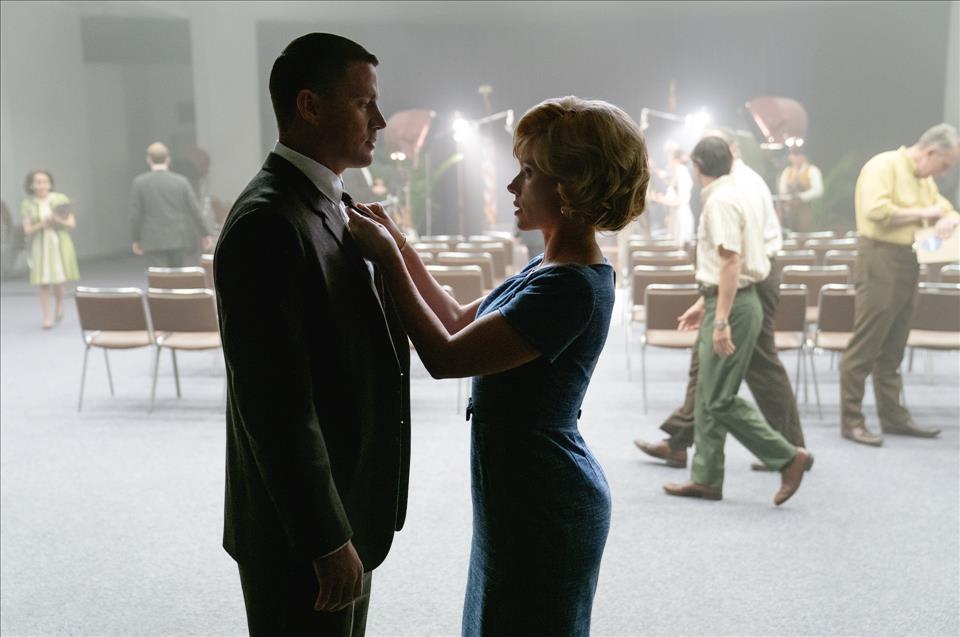
Fly Me To The Moon: Romcom About 'Selling The Moon Landing' Reviewed By A Marketing Expert
Arguably another, no less significant, contribution of America to the world is the discipline of marketing. And there's a reasonable argument that this film itself is something of a promotional vehicle for Nasa at a time when such publicly funded projects are viewed with scepticism.
The marketing industry grew rapidly alongside the Apollo programme. And the growth of the market society paralleled the scientific and technological boom that gave rise to the most ambitious project of all; to put man on the Moon.
As new technology made goods cheaper to manufacture and markets consequently became saturated, manufacturers had to identify new needs among their customers that they could fulfil. Marketing became not so much a profession, as a way of life.
The trailer for Fly Me to the Moon.
In this Hollywood version of the 1969 Apollo 11 mission, Kelly Jones (Scarlet Johansson), a sassy marketing expert from Madison Avenue, is called in to make the American public excited; to“sell the Moon”. But it's the threat of blackmail from the shadowy government operator Mo Berkus (Woody Harrelson) alluding to Jones' criminal past that persuades her to accept the challenge.
Cole Davis (Channing Tatum) is the uptight flight director at Cape Kennedy who is focused on his own, seemingly impossible and underfunded, mission get a man on the Moon. But Davis is motivated by higher ideals. Early on, he challenges Jones on the product placement deals she brokers with Omega watches and Fruit of the Loom underwear – he isn't going to turn his rocket into a billboard. Jones reassures him:“We don't have to send any of this up into space.”
“So,” he retorts,“you're going to lie.”
“It's called selling ...”
“No, it's called lying.”
If there is a high concept in this film, it's the importance of the truth. It's a moral question that dogs us all in an age of conspiracies and fact-checking. Here, that question is set against one of the most pernicious lies of the last 60 years – that Nasa faked the Moon landings.
In those 60 years, the idea that marketing should be a core discipline of business and government was fuelled in part by the ideas of Edward Bernays . Bernays was the founding father of public relations, whose insight was that all consumer decisions were influenced (if not wholly determined) by subconscious desires. The work of the marketer is to uncover them and exploit them.
Lance (Jim Rash) and Kelly Jones (Scarlett Johansson) in Fly Me to the Moon. Sony Pictures
People, as“target consumers”, became defined not so much by what they did as what they consumed – and they consumed what they were told would meet their deepest desires.
Rocket scientists watching Fly Me to the Moon may be dismayed that the Apollo project is so sketchily portrayed, or by the suggestion that it might have been a hoax. But it's just as likely that marketing professionals will baulk at the easy assumption that what Johansson's character is doing for the moonshot is, indeed, marketing.
Nobody argues that in the 1960s the American public needed the Apollo project. As Berkus says, public support for the program is“rock bottom”. So important is this success to the US government, however, that Berkus instructs Jones to create a (top secret) version of the Moon walk, just for the global TV audience. This gives rise to the film's most obviously comic, yet most unrealistic, scene as the Moon surface is recreated in a spare hanger on the base along with Aldrin and Armstrong actors on wires.
By the end of the film, the success of Apollo 11 means that the planned deception is redundant. While today, according to research , Nasa enjoys growing support from the American public, few regard revisiting the Moon as a priority. And despite six Moon landings and 12 Moon walks, a persistent 18% still believe that the Moon landings were faked.
As Scarlett Johansson's character says, in what must surely have been in the pitch for the film to its investors:“The truth is still the truth, even if no-one believes it and a lie is still a lie, even if everyone believes it.” As artificial intelligence threatens the integrity of any visual evidence, that proposition looks increasingly unsafe. Maybe Nasa needn't plan a trip to Mars. A faked landing might just as easily become the truth – if it's marketed well enough.
Looking for something good? Cut through the noise with a carefully curated selection of the latest releases, live events and exhibitions, straight to your inbox every fortnight, on Fridays. Sign up here .

Legal Disclaimer:
MENAFN provides the
information “as is” without warranty of any kind. We do not accept
any responsibility or liability for the accuracy, content, images,
videos, licenses, completeness, legality, or reliability of the information
contained in this article. If you have any complaints or copyright
issues related to this article, kindly contact the provider above.

















Comments
No comment